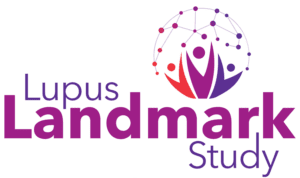Participate in Research

Participate in Research
From participating in clinical trials to sharing your story, there are multiple ways to help us advance research. Learn more about the many ways you can help contribute to research today.
Help Guide Research
 Our clinical research affiliate, Lupus Therapeutics, is on a mission to advance clinical research so that all people with lupus have faster, more equitable access to safe and effective therapies. If you are living with lupus, Lupus Therapeutics needs your support to continue its research in personalized treatments and work toward cures. Below are just some of the ways you can work with Lupus Therapeutics to support clinical research.
Our clinical research affiliate, Lupus Therapeutics, is on a mission to advance clinical research so that all people with lupus have faster, more equitable access to safe and effective therapies. If you are living with lupus, Lupus Therapeutics needs your support to continue its research in personalized treatments and work toward cures. Below are just some of the ways you can work with Lupus Therapeutics to support clinical research.- Patient Advisory Boards (PABs): By participating in a PAB either in-person or virtually, people living with lupus can provide valuable feedback on many aspects of clinical trials and research. Some of these include study design, recruitment materials, and the packaging and design of new therapies.
- Patient Protocol Review Council (PPRC): Established by Lupus Therapeutics, the PPRC invites people living with lupus to review and provide input on clinical trial-specific documents, such as the study protocol itself and informed consent forms.
LEARN MORE AT LUPUSTHERAPEUTICS.ORG
Join the Lupus Landmark Study
 The Lupus Landmark Study (LLS) is a groundbreaking initiative by the Lupus Research Alliance designed to accelerate the development of personalized treatments for people living with lupus. The LLS will follow and collect longitudinal data from 3,500 patients over time, enabling major breakthroughs in the treatment of lupus. The key to success is participation in this study by a diverse group of people.
The Lupus Landmark Study (LLS) is a groundbreaking initiative by the Lupus Research Alliance designed to accelerate the development of personalized treatments for people living with lupus. The LLS will follow and collect longitudinal data from 3,500 patients over time, enabling major breakthroughs in the treatment of lupus. The key to success is participation in this study by a diverse group of people.LEARN MORE
Participate in a Clinical Trial
In recent years, major advancements in lupus treatments approved by the U.S. Food and Drug Administration (FDA), but we need more treatments. Researchers are studying dozens of potential treatment options in controlled clinical trials, and we need participation from a broad range of people living with lupus. Diversity in demographics and how each individual patient’s lupus manifests are essential to ensure our research is rigorous and representative of the entire lupus community.
LEARN MORE
Give to the Lupus Brain Bank
Up to 95% of people with lupus experience neuropsychiatric lupus (NPSLE), which includes a wide range of neurologic symptoms — symptoms like not thinking clearly; forgetting things; or even seizures, stroke and psychosis. To gain a deeper understanding of what’s going on in the brain, it’s critical to look at human brain tissue. The Lupus Research Alliance has worked with the Harvard Brain Tissue Resource Center (HBTRC) to develop a program to recover donated brains from deceased individuals with lupus.
LEARN MORE
Together, ManyOne Can make a difference!


